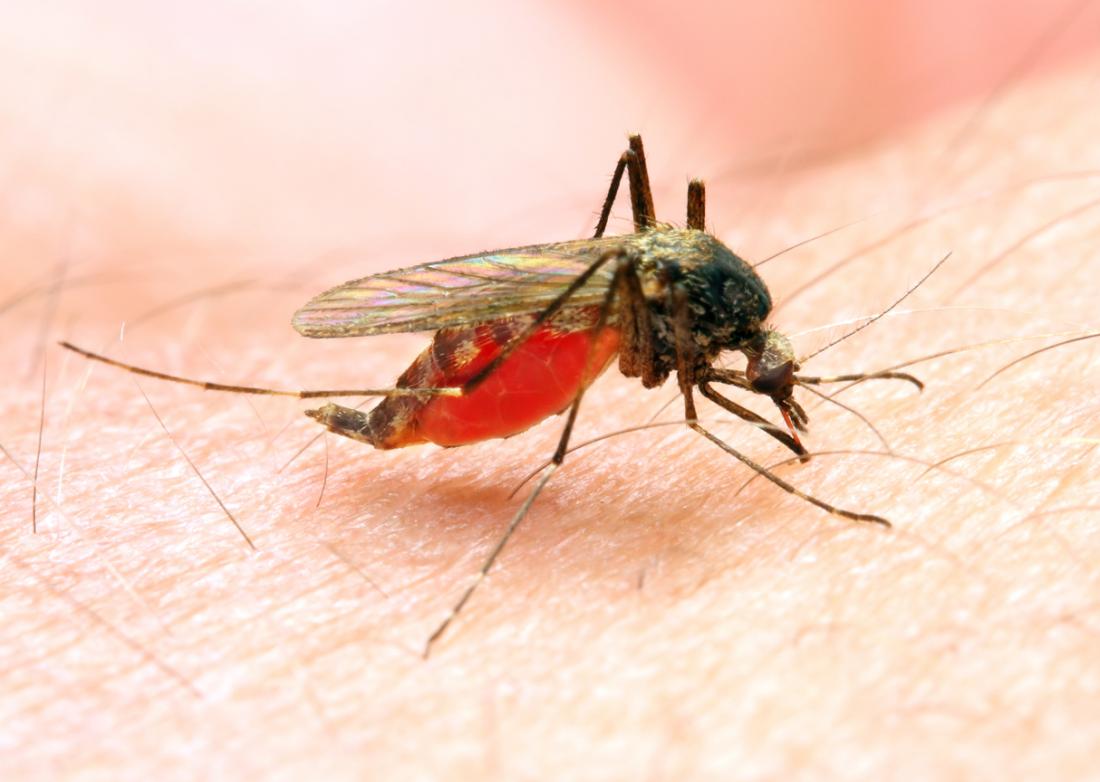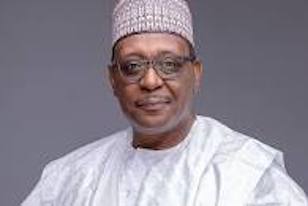Health
FG Raises Alarm Over Malaria Contributing 30% to Global Burden , 194,000 Death in 2021

By Laide Akinboade, Abuja
The Federal Government, FG, at the weekend raised alarm over Nigeria contributing over 30% of malaria global burden.The Minister of Health & Social Welfare, Professor Ali Muhammad Pate, revealed this at the Roundtable Discussion on Rethinking Malaria Elimination in Nigeria, organized by Ministry of Health in Abuja.
He said it is unacceptable that that more than 70 years since Nigeria began implementing programs to eliminate malaria, it still bears 30% of the global burden, with an estimated annual 68 million cases and 194,000 deaths from the disease as of 2021. He therefore said for Nigeria to address the burden of malaria, there is need to re strategize it’s approaches in addressing the constraints that prevent efficient delivery of existing effective key malaria control strategies and forthcoming innovations and tools.According to the Minister, “It is unacceptable that more than 70 years since Nigeria began implementing programs to eliminate malaria, it still bears 30% of the global burden, with an estimated annual 68 million cases and 194,000 deaths from the disease as of 2021. This is not due to lack of political commitment or human capacity within Africa to bring an end to the scourge of malaria but, I would say, because of insufficient focus and commitment.Exactly twenty-four years ago, on April 25, 2000, during the African Summit on Roll Back Malaria in Abuja, over 44 Heads of Government and development partners signed the so-called “Abuja Declaration on Roll Back Malaria,” outlining several objectives and a plan of action to combat malaria in Africa.”When we interrogate the objectives of the Declaration, we could candidly assess how much progress we have made across the scales:Have we sufficiently raised awareness about the severity of malaria as a public health issue and are we taking the requisite urgent action to control and eventually eliminate malaria?In the face of the scourge of malaria, have we mobilized enough financial and technical resources to support malaria control efforts in Nigeria and other African countries, including both domestic and international funding, as well as technical assistance from organizations and governments?Are we invested in strengthening our health systems towards improving malaria prevention, diagnosis, and treatment targeting infrastructure, training healthcare workers, and improving access to essential malaria interventions?”Do our approaches do enough to improve equitable access to prevention and treatment such as insecticide-treated bed nets and antimalarial drugs, as well as prompt and effective treatment for those infected with malaria through expanding coverage and reaching vulnerable populations, including pregnant women and children?Are we truly aligned on fostering collaboration transparently among ourselves bringing our development partners, civil society, and the private sector for sharing best practices, coordinating efforts, and monitoring progress towards malaria control targets?”To be sure, the RBM Initiative has achieved remarkable progress even though we are yet to triumph over malaria. For example, we have witnessed increased funding for malaria control efforts in Africa, both from domestic sources and international donors. But gaps exist. In December 2023, President Bola Ahmed Tinubu, GCFR, as part of achieving the Renewed Hope Agenda for improved quality health outcomes for all Nigerians, launched the Nigeria Health Sector Renewal Investment Initiative [NHSRII] backed by a Compact among the 36 State Governors, FCT Minister, our development partners, and civil society.Anchored on a Sector-Wide Approach, Mr. President approved that every actor within the Nigerian health sector must commit to adopting a common template in efforts to developing and implementing initiatives to save lives, reduce physical and financial pain, and produce health for all Nigerians in an equitable and accessible way”.Pate, lamented, “Despite all these efforts, the country has not seen the much-desired progress – which is the reason we are here today. Morbidity and mortality in absolute numbers are increasing – fueled by several factors from inadequate funding to increasing insecticide resistance, to disruptions to essential malaria services”.The Minister of State for Health and Social Welfare, Dr. Tunji Alausa, in his welcome address decried the fact that about 60% of all hospital attendance in Nigeria is malaria, and the disease contributes about 25 – 30% to childhood mortality. “About 60% of all hospital attendance in Nigeria is malaria, and the disease contributes about 25 – 30% to childhood mortality. There is hardly any aspect of our daily lives that is not affected by malaria, which has a consequential effect on our productivity. The disease has indeed remained a foremost public health challenge. “Nigeria has witnessed some reduction in the prevalence of malaria since the introduction of some interventions such as the use of long-lasting insecticidal Nets, the use of Artemisinin-based Combination Treatments for the treatment of uncomplicated malaria, as well as the introduction of chemo-preventive therapies for pregnant women and children below the age of 5 years. It is, however, disheartening that despite all these efforts, malaria remains a considerable burden in the country, affecting all age groups as well as unborn babies. “The performance appraisal of the National Strategic Plan 2014 – 2020 showed a modest drop in parasite prevalence from 27% in 2015 to 22% in 2020. The Midterm Review of the National Malaria Strategic Plan 2021 – 2025 conducted in 2023 similarly showed an unimpressive performance and a clear demonstration that continuing in the same business-as-usual mode may never give us the desired results. Therefore, this roundtable discussion, with the participation of experts across the globe and our development partners, is crucial. We must review our past and current strategies and approaches, fine-tune some tools, and introduce new ones for a better outcome”.The Permanent Secretary of the Ministry, Daju Kahollom, said it is imperative for Nigeria to prioritize prevention, strengthen its health systems, and ensure access to effective diagnosis and treatment for all. “As we gather here today, we are reminded of the devastating impact of malaria as it affects our mothers, children and communities. In as much as malaria is a preventable and treatable disease, yet it remains a leading cause of illness and death in our country. However, the country has made some progress over the years. The World Health Organization has estimated that malaria incidence has reduced by 26% since 2000, from 413 per 1000 population in 2000 to 306 per 1000 in 2021. Within the same period, malaria mortality rate (i.e. deaths per 1000 population at risk) fell by 55% from 2.1 per 1000 population in 2000 to 0.9 per 1000 population in 2021.”We must prioritize prevention, strengthen our health systems, and ensure access to effective diagnosis and treatment for all. It is indeed not a compliment that Nigeria bears a third of the global burden of malaria, with the country accounting for 27% of global malaria cases and 31% of global deaths – based on the 2023 World Malaria Report issued by the World Health Organization”, she said.Health
Psychiatrists Demand Decriminalization of Attempted Suicide

By Ubong Ukpong, Abuja
Association of Psychiatrists in Nigeria (APN) President, Prof. Taiwo James Obindo, has asked for the decriminalization of attempted suicide in the country.
He made the call at a stakeholders meeting organized by the House of Representatives Committee on Specialty Healthcare on the need to prioritize and implement the Mental Health Act.
Obindo said the establishment of the National Counselling Centers all over the country in an attempt to address mental health was like putting the cart before the horse, because suicide attempt was still a criminal offense in both the Criminal Act and the Penal Code.
“Hence the first step would be a move to decriminalize attempted suicide.
Criminalizing attempted Suicide has proven to be a major barrier for suicide prevention intervention service uptake.“The archaic law, inherited from our Colonial masters, in an attempt to stop the act of suicide did not address the thoughts and social determinants of Suicide. Significant evidence showed that 90% of those who take their lives through suicide had a background history of Mental Health Conditions; out of which 80% are attributable to Depression due to various bio-psycho-social aetiologies.
“Why do we, as a Nation, then punish individuals who are ill and need medical attention rather than prosecution? It will shock you to know that Nigeria, the giant of Africa, is lagging behind as quite a number of our neighbouring nations have abrogated that law.
“Establishing a Counselling center, without abrogating this archaic law would put, even the counselors at risk because the law also prescribes penalties for those who are aware of the plan but did not report,” he said.
The psychiatrists Association President called for the implementation of the Mental Health Act, which he said was a product of legislation that went through rigorous processes by the legislature, assented to by the President of the Federal Republic of Nigeria in 2022, and has been gazetted as a law in the Country.
This, he said, would address the “many years of neglect of this important aspect of our nationhood.”
Obindo said a requirement for the effective implementation of the Act was the establishment of a Mental Health Services Department in the Federal Ministry of Health.
“It will shock you to hear that, more than a year later, the department is yet to be established. Most of, if not all, the items in your plan are meant to be supervised by this department in obedience to the rule of law! Hence, the establishment of the department is germane to the success of all your plans,” he said.
He said the Association of Psychiatrists in Nigeria was an umbrella body of all Psychiatrists in the Country and other allied Practitioners.
He said they have been at the forefront of campaigns and advocacy for global best practices.
He lauded the Committee for the initiative, saying when well-implemented, would positively impact the hitherto neglected Mental Health, persons affected by Mental Health Conditions, and Mental Health Practitioners.
Chairman of the Committee on Special Healthcare, Dr Alex Egbona, said all stakeholders must partner to address mental health challenges and other related health cases.
The lawmaker said the committee was created to provide the requisite legislative frameworks for improved healthcare delivery in Nigeria.
He said the session was a collaborative initiative of the committee to share its mandate and planned activities with identified relevant institutions and organisations.
“I, therefore, solicit the support and partnership of all stakeholders, our development partners, international NGOs, and CSOs, you are all urged to take interest in building the capacity of the committee members and staff to enhance the efficacy of the committee.
“Consider our five thematic areas of Mental Health, Trauma and Obstetrics Fistula, Oral Health and ENT, Blood Transfusion, Blood and Management, Traditional Complementary and Alternative Medicine and engage the committee for maximum impact,” he said.
Health
WHO Expresses Concern over Monkey Pox Outbreak in DRC

25,318 suspected cases of monkey pox, including 1,204 deaths, have been reported in the Democratic Republic of the Congo (DRC) since the declaration of monkey pox outbreak in December 2022.
The World Health Organisation (WHO) said on Tuesday.
According to the latest report, the outbreak, which was declared by the DRC Health Ministry on Dec.
16, 2022, was prompted by a notable surge in cases and fatalities associated with monkey pox as well as a fast spread to non-endemic provinces.Since the beginning of 2024, a total of 5,133 suspected cases, including 321 deaths, have been reported, according to the WHO report. It warns that the current situation of the outbreak in the DRC is of “grave concern” due to the sustained increase in suspected cases compared to previous years.
It added that with a significant burden in younger populations, particularly children under 15 years of age, who constitute the majority of both suspected cases and deaths.
In April 2024, a high-level emergency regional meeting on monkey pox in Africa was convened in DRC capital Kinshasa, gathering 12 health ministers of regional countries, aiming to develop common strategies to prevent and intervene effectively in the face of monkey pox in Africa.
“We must prevent the DRC from becoming the source of cross-border transmission, and our partnership must prioritise the health of those affected,’’ said Jean Kaseya, the director general of the African Centers for Disease Control and Prevention (Africa CDC) at the meeting.
“Over the years, monkey pox has become a real public health problem for our communities in the DRC, a regional threat and ultimately a global problem.
“We must now mobilise to resolve this crisis,” said Roger Kamba, DRC minister of public health, hygiene and prevention, said at the meeting.
Monkey pox, first detected in laboratory monkeys in 1958, is assumed to be transmitted from wild animals such as rodents to people or from human to human (Xinhua/NAN)
Health
WHO Warns of ‘Bloodbath’ as Rafah Offensive Looms

The World Health Organisation (WHO) has warned of dire consequences if Israel goes ahead with an impending military operation in Rafah.
The planned push into the southern border city of Rafah would lead to “a bloodbath,” the organization wrote on X, formerly twitter on Saturday
The WHO said that more than 1.
2 million people were currently sheltering in the area, many unable to move anywhere else.“A new wave of displacement would exacerbate overcrowding, further limiting access to food, water, health and sanitation services, leading to increased disease outbreaks, worsening levels of hunger, and additional loss of lives.
”According to the WHO, only 33 per cent of Gaza’s 36 hospitals and 30 per cent of primary health care Centre’s were functional in some capacity amid repeated attacks and shortages of vital medical supplies, fuel, and staff.
WHO calls for an immediate and lasting ceasefire and the removal of the obstacles to the delivery of urgent humanitarian assistance into and across Gaza, at the scale that is required.
Israeli Prime Minister, Benjamin Netanyahu is determined to launch an offensive in Rafah to eliminate the remaining strongholds of Hamas.
The organisation said that although Israel’s allies have repeatedly urged caution, as a large majority of the approximately 2.2 million inhabitants of the Gaza Strip have fled to the south during the war. (dpa/NAN)





















